The Japanese-American author of a book about the hardships her mother experienced in the United States during World War II calls on young people to learn more about the era's immense suffering and work toward ridding the world of such conflicts.
"One of my major goals is to recruit high school, college and graduate students" to tell the story to the next generations, said Shirley Higuchi, a 64-year-old lawyer in Washington, during an interview ahead of the 78th anniversary of Tokyo's Aug 15 surrender in the war.
In 2020, Higuchi published "Setsuko's Secret," a nonfiction book based on the life story of her mother Setsuko who was incarcerated at a U.S. camp with her family after the December 1941 Japanese attack on Pearl Harbor. The book's Japanese translation was released in March this year.
Two months after the Japanese attack, President Franklin Roosevelt issued an executive order that authorized forcible relocation efforts and led to U.S. authorities transferring more than 120,000 Japanese immigrants and Japanese-Americans to some 10 camps.
Setsuko was 11 years old when she and her family were taken from their home in California to the Heart Mountain camp in Wyoming, Higuchi said.
The executive order was justified as an attempt to prevent spying activities and attacks on military facilities of the United States by residents including Japanese immigrants and Japanese-Americans. But Higuchi said, "There was no evidence of any such activities."
At Heart Mountain, the five family members including Setsuko lived in a 45-square-meter room in the camp's wooden barracks, with shared bathrooms and showers. The property was surrounded by barbed wire and had armed guards on duty around the clock.
When Higuchi, as a grown-up, sought details about the wartime confinement of her mother's family, Setsuko did not talk much about it and simply said, "I was happy," or that the camp had been a "fun place" where she met her husband.
Unbeknownst to Higuchi until after her mother's death in 2005, Setsuko had also given more than $100,000 to help convey the history of the incarceration camps.
Higuchi later became chair of the Heart Mountain Wyoming Foundation and worked to open a museum in 2011 called the Interpretive Center, which preserves and exhibits materials related to the old camp.
Norman Mineta, a former Heart Mountain incarceree and the first Japanese-American to assume U.S. Cabinet posts, including secretary of commerce, contributed to the project.
"I got the impression that the Japanese students are very sheltered," Higuchi said. She visited Japan in 2019 and talked to high school students in Tokyo.
"Japanese young people need to open up their minds and know what is going on in the world, and more importantly, know their history -- good and bad -- of Japanese in America," she said.
© KYODO





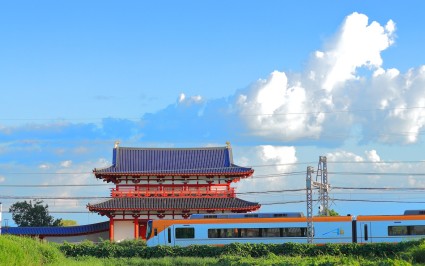

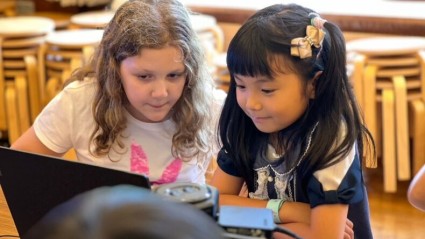
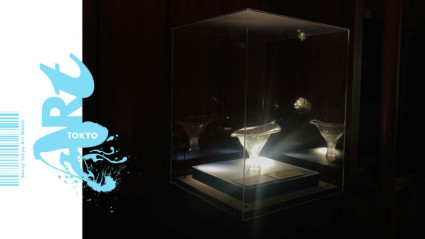
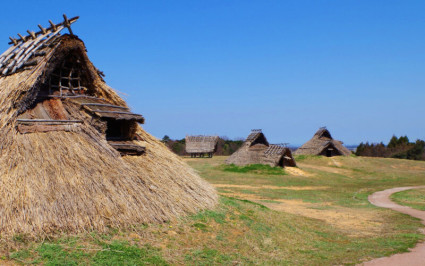
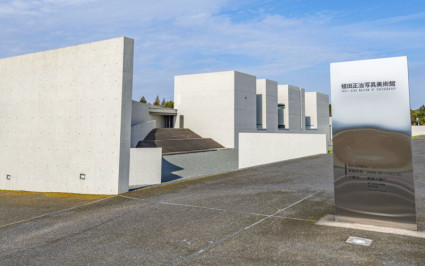
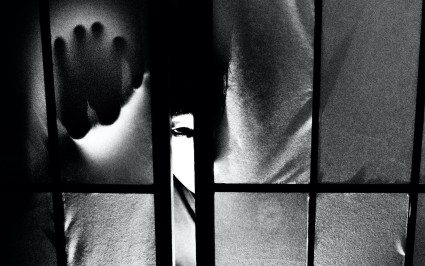
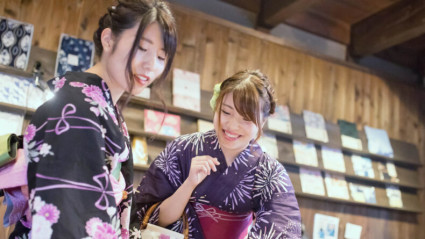

53 Comments
Login to comment
dagon
These people were true blameless victims and proved to be brave Americans. A betrayal of everything America was supposed to stand for, like slavery.
Samit Basu
War time memory is alive and well in the US; this is the reason why non-Citizen Arabs weren't interned in the US in the aftermath of 9/11, because of the painful memory of the Japanese American internment which the US issued an official state apology and compensations for. While Arab American citizens couldn't be interned, non-Citizen Arabs(green card holders and students) could have been legally interned but the US chose not to.
Unfortunately, the same doesn't hold true for Japan, and Japanese students don't understand why the rest of Asia hates Japan so much.
JeffLee
There sure was in the lead-up to the invasion of Malaya. A considerable portion of the local Japanese community were military/government agents or working for them. They even bought property in strategic locations. The locals were often surprised by seeing Japanese "civilians" conducting land surveys in the weeks before the Japanese invasion.
See "Out in the Midday Sun" by Margaret Shennan.
There was also the Niihau Incident in Hawaii, which triggered concerns about the loyalty of some Japanese residents.
https://en.wikipedia.org/wiki/Niihau_incident
Before the attack, Pearl Harbor was spied on by a guy disguised as a Japanese tourist, he said in an interview in "World at War."
The en-mass incarceration was excessive. But the govt was right to be concerned at that early point in the war, given the tactics of imperial Japan's espionage activities. Perhaps establishing small military monitoring outposts in communities would have been better.
Jolyon
It is regrettable, of course, and should not be forgotten. So to other camps, where survival rates were deliberately much worse, and treatment far more cruel.
Gene Hennigh
I know some Japanese Americans who were interred. One was my uncle. His parents had a truck farm and a vegetable store in Oklahoma. My uncle was a boy at the time and had hundreds of marbles. He put his favorite marble in his pocket since they were allowed just one suitcase per person.
When they were disinterred, the truck farm and store were gone. They moved to the slums in Chicago and worked their way up to the upper middle class.
What is overlooked is that these US citizens lost most of what they had and were not reimbursed. I could write a book about my talks with my uncle about the camps. It was a miscarriage of justice, and a sad one. German and Italian citizens were not interred. Of course, one of the most decorated of army battalions was made up of Japanese Americans, most of whom volunteered from the camps.
Rodney
Not possible in Japan because everything is censored
BigP
“I got the impression that the Japanese students are very sheltered”
Completely “ignorant” of WW2 history is more appropriate. Yes, Hiroshima & Nagasaki, but teach them why it happened. There was a reason and there were people responsible for all that terrible war.
Teach history correctly or the same mistakes will happen.
Alan Harrison
More one sided rewriting of history. After the attack on Pearl Harbour the Japanese rounded up hundreds of Western people in Shanghai. Bankers, businessmen. Some were interned at the infamous Bridge House in Shanghai. Japanese living in the US during the war were treated very well in comparison, an compensated years later.
dagon
Niihau, the "Forbidden Island" of mainly pure Native Hawaiians, were maybe sore about 50 years before having US Marines land and imprison their Queen and a bunch of carpet-bagging missionary families become the biggest landowners on the islands.
Jay
Historical facts, despite the Establishment Left peddling the world view that only Western, majority-white nations have been responsible for historical wrongdoings.
TaiwanIsNotChina
You seem to have extensive knowledge about the US. Makes me wonder why you know nothing about the 10 million dead in the Pacific War.
u_s__reamer
The right-wing regimes that have ruled in post-war Japan have ensured through the carefully controlled education of the young generations that they don't grow up critical of the wars of aggression waged by their forebears and the millions of victims who died as a result. Pretty much the same policy of every government in the world, ie., no word of blame for a country's previous warmongering governments and their heinous crimes against humanity. Still, as with many other things, the obfuscation of history is even more egregious in the Land of Wa and other Asian countries.
Jay
Yes, because no Far Left government has ever waged a war of aggression. Those 100 million + killed to advance the causes of Stalinism in Russia, Maoism in China, Marxism/Leninism in South East Asia and Central & South America... just figments of the imagination of the "right-wing fascist, racist, transphobic misogynists", right comrade?
smithinjapan
They should learn ALL history, from Pearl Harbor to incarceration, to the bombings that caused Japan’s surrender.
winston
10 million ?
Try -over 30 million
Iam wondering why you don't know that
winston
Iam curious if the book is a victimized type of story somewhat one sided or if it encompasses what was happening globally at that time and what caused the war in the first place.
Jimizo
Have you read a lot about WW2?
What books would you recommend?
aaronagstring
What utter nonsense. No Italian-Americans were interned. No German-Americans were interned. Those that were, were not US citizens. Their loyalty to the US was never questioned, never in doubt. Contrast that with Japanese-Americans, approximately two-thirds of whom were overwhelmingly 2nd or 3rd generation US citizens. And their loyalty was always questioned, always doubted.
”I don't want any of them here. They are a dangerous element. There is no way to determine their loyalty... It makes no difference whether he is an American citizen, he is still a Japanese. American citizenship does not necessarily determine loyalty... But we must worry about the Japanese all the time until he is wiped off the map.”
Lt.General John DeWitt to US Congress.
Rodney
there is a famous saying, “ whoever wins the war can write the history“
people don’t understand that Russia defeated Nazi germany, and USA didn’t murder women and children in japan/Asia. Japanese don’t understand raping 300000 girls and women. The Vatican never went to South America.
humans suck. But I hate centipede and snakes more.
stormcrow
I knew a Japanese-American who visited Japan for a vacation when PearlHarbor was attacked. His name was Fred and was a young boy of about 11 or 12. Anyway, he was trapped and couldn’t get back to the USA. The secret police were assigned to keep an eye on him, he told me, and they became his only friends and protected him from the bullies full of anti-American propaganda. But he said the kempeitai were kind to him and probably felt sorry for him.
OssanAmerica
Totally off the mark. How many of those Western people were Japanese citizens living in Japan? The US did the same to foreign nationals of enemy states be it Germany Japan or Italy. The issue is the treatment of US citizens during WWII. Not enemy aliens.
Strangerland
I find that on a social level, the rest of Asia loves Japan. I was surprised in China how many of the people there were interested in Japan when I told them I lived there. It's only on a political level does real anger exist between the nations.
Yrral
Taiwan, Chinese would of been rounded up alongside Japanese, because what White people thought about them
opheliajadefeldt
As a young German my recollections of WW2 history being taught in school are recent, about 7yrs ago. Our teaching was comprehensive and left nothing out, we even had to visit Nazi concentration camps, which is some thing I will never forget. Later as a student of history and P.Science at Uni I learned so much more about what happened the world over, and it was not very pleasant. The war crimes, committed by the Japanese army were atrocious, from China to Indonesia, in fact, in all the Pacific countries they occupied. The murder of unarmed civilians was unparalleled except by the Germans and Russians. Yes, do not forget Stalin, one of the winners. War crimes were committed by all the countries but we do not hear much about the ones who 'won' the war. The history of WW 2 should be taught in every school around the world, but I doubt if this would even resonate with modern students who's grasp on any thing historic is minimal. In fact I have met young students who know nothing of 9/11 in NY. I do not know the depth of what is taught in Japanese schools, but every thing should be included. Every thing.
Yrral
Japan today fail history on an.hourly basis, especially American history
Yrral
I implore all fellow Americans,by celebrating VJ Day ,maybe with a BBQ
Fredrik
At the end of WW2, it was agreed that the ruling elite should be totally cleared from of all guilt, and all blame put on Tojo Hideki. So, Japan has just been faithful to this agreement...
Yrral
VJ Day is a celebration of the liberation of humankind,over people that should of known attacking the US , would bring an untold wrath on them
winston
Ive read a fair amount of literature from various sources and listened to talk shows and family members and friends served during the conflicts.
Iam not an authority on the subject
I recommend doing your own research
Yrral
I promote liberty, equality and just for all,as an American,I know my country past,you probably do not live in your native country
winston
Asia is part of Eurasia
There's nations in Asia you personally cannot visit or socialize with so your opinion is only valid to yourself and doesn't realistically reflect the sentiment of the rest of Asia socially or political for that matter.
Being that Han Chinese is the largest gene pool in Asia and the world it shouldn't come as a surprise Chinese are interested in Japan.
Beyond what the China government thinks of Japan there's still Chinese that remember Nanjing
AlternativeOpinion
I think we can all acknowledge war is hell!
need some perspective?
https://www.youtube.com/watch?v=zfWmO9BJaOA&ab_channel=ADayInHistory
itsonlyrocknroll
US knew of Japanese American spies
https://www.cia.gov/readingroom/docs/CIA-RDP90-00552R000202030026-8.pdf
A 1941 FBI Raid Reveals a Network of Japanese Spies in LA
https://www.youtube.com/watch?v=8VpsA-bxl-A
I feel it crucial to separate the US government suspicion of an Japanese Imperial Government/Army/Intelligence services placing spy’s prior to Japan Airforce attack on Pearl Harbour and the E. O. 9066 signed by President Franklin D. Roosevelt on February 19, 1942.
All persons of Japanese ancestry, 120,000 interned, in many instances proud American patriots, that felt ostracized from society deemed as potential fifth column saboteurs.
No evidence has eve been submitted that any of those interned participated in spying or sabotage.
The harsh really of internment is fully analyzed and documented including actual family life experiences interned Heart Mountain Wyoming….
Voices from the Archives
Japanese American Internment, 1942–1946
https://histories.hoover.org/Japanese-American-Internment/
Truly worth a review and read. A sometimes heartfelt detail of the human cost.
“I Wish Free My Life.” Taketaro Azeka, June 18, 1942
"Japanese young people need to open up their minds and know what is going on in the world, and more importantly, know their history -- good and bad -- of Japanese in America"
I couldn’t agree more.
Wick's pencil
Or they do not accept the victor's version.
Yes, the US wanted to show off to the Soviets their new weapon.
Indeed, that's why the same mistakes are happening because NOBODY is teaching it correctly.
itsonlyrocknroll
I have always believed that there should be reflection, a complete and unflinching appraisal to the history of War in Japan and how such a war occurred and why.
So .....
Diaries shed light on plight of foreign nationals in Japan's internment camps
https://www3.nhk.or.jp/nhkworld/en/news/backstories/1281/
winston
There's so many variations of history and even attempts to rewrite it.
And then stuff like the Mandela effect to further complicate
When will they ever learn conflicts aren't the way to obtain peace.
winston
A extraordinarily cruel and unusual way to show off by committing the unthinkable
Only a matter of time before the neutrinos weapon is wielded.
OssanAmerica
Not a comparison. The US also rounded up Germans. Japanese and Italian nationals as "enemy aliens".
The internment of J-A's in the US is an issue because most were US Citizens deprived of their rights guaranteed to them by the Constitution of the United States.
TaiwanIsNotChina
Then after they are taught why Japan was at war in the first place, they can be taught how in the process of "showing off" the US secured Japan's existence as a single country.
TaiwanIsNotChina
You got your analogy wrong: Russians don't understand that they didn't defeat Nazi Germany alone.
winston
Just the ones that killed 27 million Russians
And Rodney didn't say 'alone' anyway.
I think Rodney is completely aware that Russia wasn't the only ones fighting nazi Germany
Bob
Well said, “"Japanese young people need to open up their minds and know what is going on in the world, and more importantly, know their history -- good and bad -- of Japanese in America," she said.”
asdfgtr
@smithinjapan,
Napalming and nuking civilians had nothing to do with Japan's surrender. It's merely an ex post facto justification used by American war crime apologists.
Rather than your opinion on this matter, I place much more value on the words of Brigadier General Carter Clarke:
“We brought them [the Japanese] down to an abject surrender through the accelerated sinking of their merchant marine and hunger alone, and when we didn’t need to do it, and we knew we didn’t need to do it, and they knew that we knew we didn’t need to do it, we used them as an experiment for two atomic bombs.”
https://rethinkingschools.org/2013/08/09/army-teaches-wrong-lesson-in-nations-high-schools/
TaiwanIsNotChina
Your numbers aren't even right:
https://en.wikipedia.org/wiki/World_War_II_casualties#Soviet_Union
Russia didn't suffer the most in WW2. Poland, Belarus, and Ukraine did.
TaiwanIsNotChina
I suspect a lot of these military figures didn't like their contribution being minimized by the bomb and/or want to appear to be checking off all of the 4th Geneva convention boxes signed after the war. What is clear to outsiders, though, is that it secured the Japan and South Korea we know today.
asdfgtr
@TaiwanIsNotChina
I find your opinion unconvincing.
The Japanese would have unconditionally given up and surrendered immediately and unconditionally to the US without the destruction of Hiroshima and Nagasaki when the Soviet Union entered the war.
Early in the war, the Soviets negotiated a peace treaty with Japan so they would not have to fight a war on two fronts. But, after the German surrender, the Soviets broke the treaty, declared war, and invaded Manchuria (including two small islands), crushing an elite Japanese army stationed there and seizing vast, logistically very-difficult territory at breakneck speed. The Soviets were now poised to attack Japan from the west, a trivial distance away across the Sea of Japan. And it was very obvious that they would very quickly do it, using no international forces other than their own.
Now, Japan realized that it was finally doomed. They had no mainland forces left to counter the Soviet juggernaut, and no way to defend against the coming invasion. Now, they had to either surrender to the Allies, or to risk having to surrender entirely to the Soviets.
When dozens of Japanese cities were now being bombed into oblivion every single night, the fact that two of them were destroyed in one blast was only slightly interesting. In fact, The Japanese war councils did not meet to discuss it – but they did immediately convene to discuss the new Soviet-driven reality.
Specifically, Emperor Hitohito's imperial rescript surrender speech to the Japanese troops made no acknowledgement of the bombs:
https://apjjf.org/-tsuyoshi-hasegawa/2501/article.html
In his speech to the soldiers and sailors, especially die-hard officers who might still wish to continue fighting, the emperor did not mention the atomic bomb. Rather, it was Soviet participation in the war that provided a more powerful justification to persuade the troops to lay down their arms.
The emperor did refer to bombs in his rescript to the general Japanese population. However, he also laughably claimed the same speech:
In reality, what motivated Hirohito to surrender to the U.S. was neither a pious wish to bring peace to humanity nor a sincere desire to save the people and the nation from destruction, as his speech to civilians stated and as the myth of the emperor’s “sacred decision” would have Americans eager to justify nuking civilians believe. More than anything else, it was a sense of personal survival and deep responsibility to maintain the imperial house (which Russian occupation would most certainly have dismantled), which had lasted in unbroken lineage since the Jinmu emperor.
Here are some starting points for your research:
https://rethinkingschools.org/2013/08/09/army-teaches-wrong-lesson-in-nations-high-schools/
https://foreignpolicy.com/2013/05/30/the-bomb-didnt-beat-japan-stalin-did/
oyatoi
Read up on your own history first. Over 11,500 German Americans were interned, (not interred). But unlike Japanese Americans, they never received a dime in compensation.
JeffLee
Except they didn't do that. The Soviets did enter the war and then the Japanese offered often fanatical resistance during the Manchurian invasion. It was a very brutal campaign that went on until Aug. 20th.
What's more, the Soviets had been building up its immense forces on the border shortly after Germany's surrender in spring, and Japan showed no inclination to surrender in the face of the Soviet juggernaut on its doorstep. That only changed after Hirohito's call for surrender, which he himself said afterward was primarily motivated by the US aerial bombings of Japan.
By the way, Ward Wilson is a disarmament advocate. He's not highly thought of as a historian. The other guy you cite is also a social advocate.
asdfgtr
Yes, this is why the Japanese were so eager to surrender to the U.S. as soon as the Soviets entered the war. The leadership of the emperor was at stake.
In reality, what motivated Hirohito to surrender to the U.S. was a sense of personal survival and deep responsibility to maintain the imperial house (which Russian occupation would most certainly have dismantled), which had lasted in unbroken lineage since the Jinmu emperor.
President Truman knew the Japanese would be "finished" as soon as the Soviets entered the war and admitted it prior to the nukings in his personal diary. The bombs were simply a live human experiment and indefensible war crimes.
Incorrect. Japan showed no inclination to surrender in the face of the nukings of H&N. The Emperor himself stated that afterward that surrender was primarily motivated by Soviet entry into the war.
When dozens of Japanese cities were now being bombed into oblivion every single night, the fact that two of them were destroyed in one blast was only slightly interesting. In fact, The Japanese war councils did not meet to discuss it – but they did immediately convene to discuss the new Soviet-driven reality.
In his speech to the soldiers and sailors, especially die-hard officers who might still wish to continue fighting, the emperor did not mention the atomic bomb. Rather, it was Soviet participation in the war that provided a more powerful justification to persuade the troops to lay down their arms.
Yes, afterward, the emperor did refer to bombs in his rescript to the general Japanese population. However, he also laughably claimed the same speech:
Do you believe this too?
Any sources other than your own opinion?
Rather than your opinion on this matter, I place much more value on the words of Brigadier General Carter Clarke:
“We brought them [the Japanese] down to an abject surrender through the accelerated sinking of their merchant marine and hunger alone, and when we didn’t need to do it, and we knew we didn’t need to do it, and they knew that we knew we didn’t need to do it, we used them as an experiment for two atomic bombs.”
In fact, six out of seven five-star WWII officers — condemned the use of the atomic bomb:
For example, Admiral William Leahy, White House chief of staff and chairman of the Joint Chiefs of Staff during the war. Leahy wrote in his 1950 memoirs that "the use of this barbarous weapon at Hiroshima and Nagasaki was of no material assistance in our war against Japan. The Japanese were already defeated and ready to surrender." Moreover, Leahy continued, "in being the first to use it, we had adopted an ethical standard common to the barbarians of the Dark Ages. I was not taught to make war in that fashion, and wars cannot be won by destroying women and children."
JeffLee
@asdfgtr
They weren't "eager" to surrender. The Supreme War Council was deadlocked after the Potsdam Declaration, which is why they left the decision to Hirohito.
He told Chamberlain Fujita in 1946 that the US aerial bombings were utmost in his mind ("motivation") when making his unilateral decision to surrender. When he met McArthur, he offered to take full responsibility for the war. Hanging was an option on the table at that point, so "personal survival" didn't seem to be much on his mind.
I wouldn't. The US military brass resented the scientists, civilians and certain military members who were appointed to effect a quick end of the war. The generals and admirals didn't want their achievements in defeating the Japanese, that took years and cost many lives, to be overshadowed by the A-bombs, which could do the job almost instantly.
Truman's Interim Council of mostly science and geopolitical experts assured him the a-bombs could do the job, thereby avoiding what would be a devastating invasion of the home islands. The council turned out to be right, so you should place more value on the council rather than generals who knew a lot about battlefields but very little about the strategic value of the a-bombs.
TaiwanIsNotChina
That's great and all, but how effective do you think the Soviet entry into the war would have been without the US blockade of the home islands? Without the American boats they needed to get to Japan? Clearly the bomb impressed Stalin enough that he left Japan and South Korea to the US. Do you think a bloodthirsty monster like that would just stop for no reason?
asdfgtr
That Japan was "eager" is illustrated by their surrender to America within days of Soviet entry to the war.
When H&N were nuked, the Japanese war councils did not quickly meet to discuss it – but they did immediately convene to discuss the new Soviet-driven reality.
Hirohito also stated: "We declared war....out of Our sincere desire.... being far from Our thought either to infringe upon the sovereignty of other nations or to embark upon territorial aggrandizement."
I suppose you believe this too?
Utter nonsense. The hanging of Hirohito wasn't on the table in 1946. They had already met on September 27, 1945.
I find your opinion unconvincing.
Only those that made the decision to nuke civilians can be credible? I find your "just chuck a nuke on civilians and say it ended the war defence" ridiculous.
Are we to believe your personal feeling that all six of the seven U.S. 5 star WWII officers were part an anti-Truman conspiracy with an axe to grind and all other critics of the bomb are social "advocates" and not be trusted? Occam's razor comes into play here.
For Truman and those on interim council eager to test the bomb on human subjects, ending the war "quickly" was just a convenient, yet unconvincing excuse.
Laughably false. As the United States Strategic Bombing Survey clearly states:
"Based on a detailed investigation of all the facts, and supported by the testimony of the surviving Japanese leaders involved, it is the Survey's opinion that certainly prior to 31 December 1945, and in all probability prior to 1 November 1945, Japan would have surrendered even if the atomic bombs had not been dropped, even if Russia had not entered the war, and even if no invasion had been planned or contemplated."
asdfgtr
The Soviet 16th Army — 100,000 strong — launched an amphibious invasion of the southern half of Sakhalin Island. No American boats used.
Then, within 10 to 14 days — they had orders to invade Hokkaido, the northernmost of Japan’s home islands.
Your opinion.
Any credible sources that use this argument as the primary justification for nuking hundreds of thousands of civilians?
Sources please.